Idea by
Ole Robin Storjohann, Mateusz Mastalski
Call for ideas 2016
Occupy Architecture
Occupy Architecture
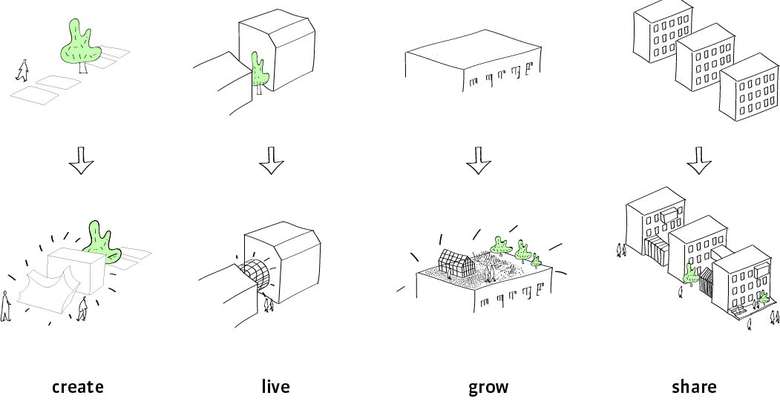
In a future where the west has lost its economic advantage but where each citizen has gained production powers through customized automation, architecture will become ubiquitous and available to everyone. While the trend to mega projects will continue, a natural counter-movement of "occupying" micro-architecture is going to fill all the gaps that big developers and declining technologies leave behind. A layer of human scale based on a maker-culture and a sharing economy. Artist studios on former parking spots in car-free neighborhoods.Housing filling in the gaps between blind gables. Community spaces as add-ons to mass produced housing. Roofs changed to farms.
Our project proposes a dual approach of analyzing the emerging interventions while also taking part in it, working as mediators between societal and urban transformation. Using “what is there” puts a new value on context. Instead of an abuse of space, it is about optimization and the growth of cities inwards instead of “beyond”.
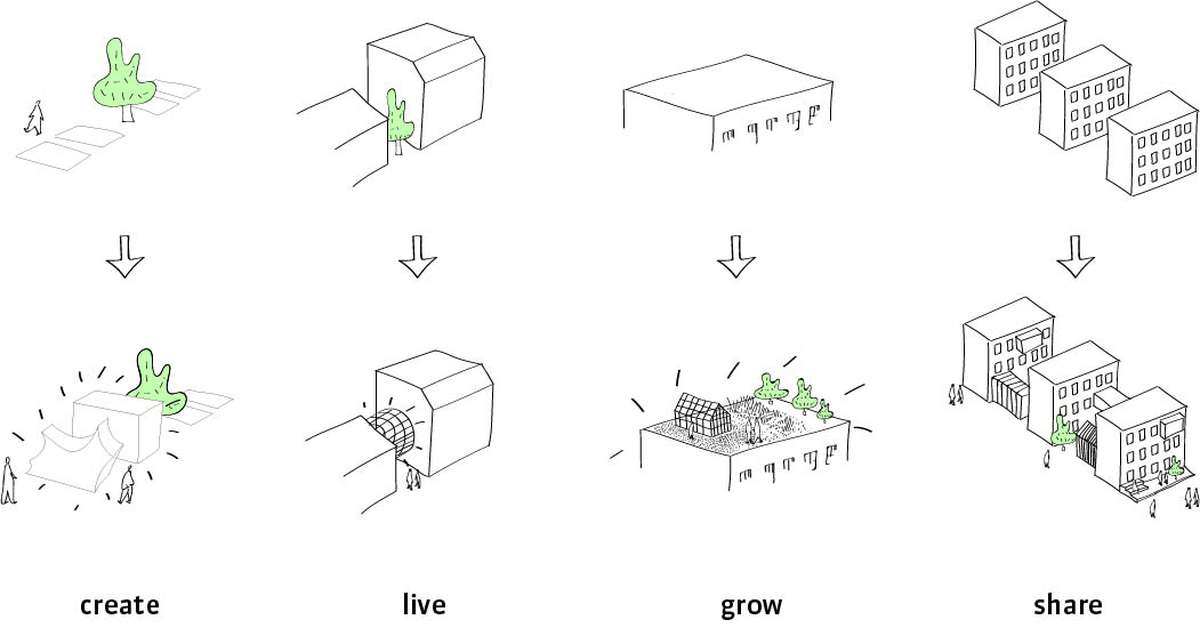
We can use the abilities of “occupying” architecture” to absorb that constantly growing gap to serve greater goods. The projects character can bring society and urban structures closer and in fact change the physical system of the city.
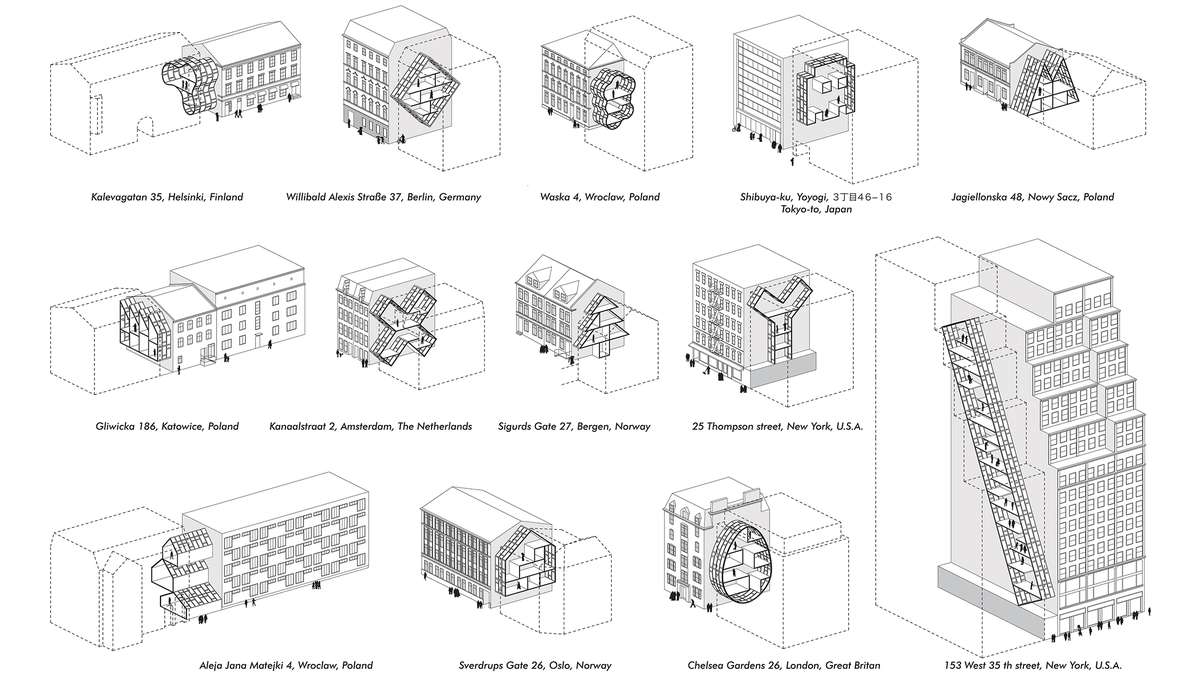
Interventions are emerging from ordinary situations using “what is there” to rethink the values of context.
Occupy Architecture
Occupy Architecture

In a future where the west has lost its economic advantage but where each citizen has gained production powers through customized automation, architecture will become ubiquitous and available to everyone. While the trend to mega projects will continue, a natural counter-movement of "occupying" micro-architecture is going to fill all the gaps that big developers and declining technologies leave behind. A layer of human scale based on a maker-culture and a sharing economy. Artist studios on former parking spots in car-free neighborhoods.Housing filling in the gaps between blind gables. Community spaces as add-ons to mass produced housing. Roofs changed to farms.
Our project proposes a dual approach of analyzing the emerging interventions while also taking part in it, working as mediators between societal and urban transformation. Using “what is there” puts a new value on context. Instead of an abuse of space, it is about optimization and the growth of cities inwards instead of “beyond”.
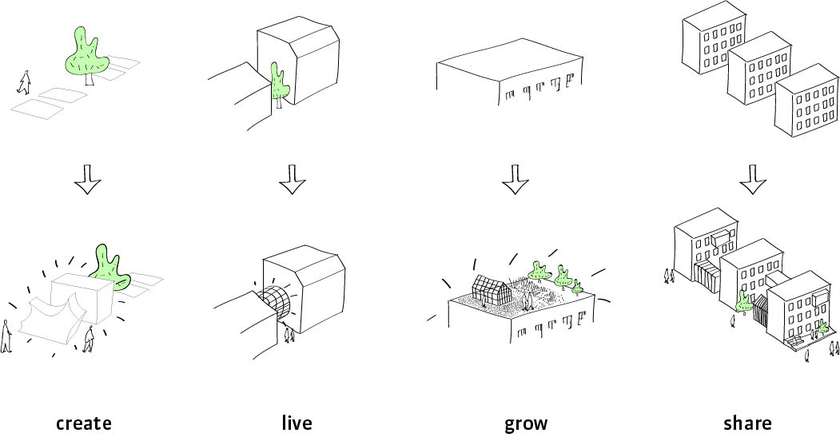
We can use the abilities of “occupying” architecture” to absorb that constantly growing gap to serve greater goods. The projects character can bring society and urban structures closer and in fact change the physical system of the city.
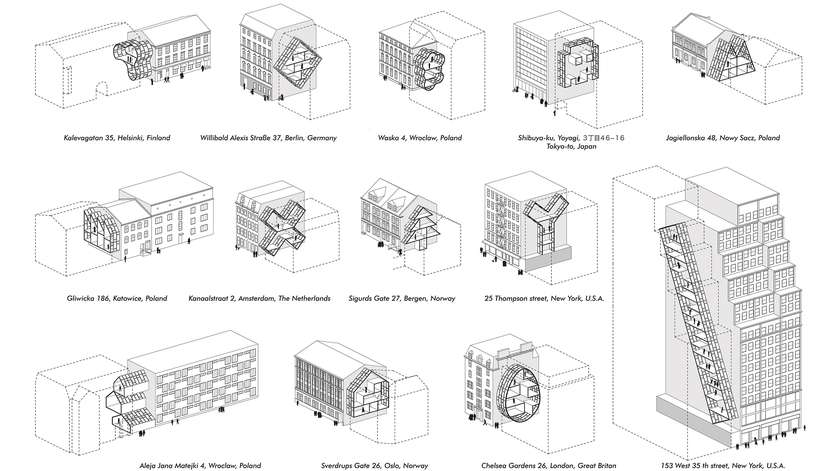
Interventions are emerging from ordinary situations using “what is there” to rethink the values of context.